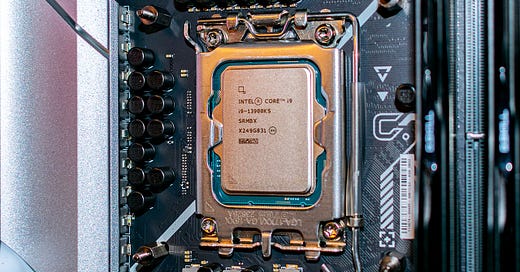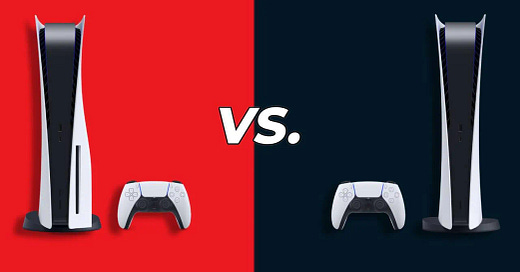
Rocket Lake is dead: Intel officially discontinues 11th-gen processors
Intel's worst processors in years will soon be unavailable to purchase
➡️ The Shortcut Skinny: bye-bye Rocket Lake
⛔ Intel has officially discontinued Rocket Lake
⚙️ The architecture was behind its maligned 11th-generation desktop chips
📅 You have until August to buy the CPUs
While we wait for Intel 14th-gen processors to come out later this year, it’s easy to forget where the company was just a couple years ago, especially with hit CPUs like the Intel Core i9-13900KS being among the best processors on the market. But now Intel has discontinued its 11th-generation Rocket Lake desktop processors, it has me thinking back.
Intel 11th-generation processors launched right in the middle of the pandemic in March 2021, almost immediately after its 10th-generation desktop chips. These processors were the last desktop CPUs the company released on its 14nm manufacturing process before it moved onto the new Intel 7 process that was used in both 12th-gen Alder Lake and 13th-gen Raptor Lake chips.
The news that these processors have been discontinued comes via a Product Change Notification that was released to retailers on February 6, according to Tom’s Hardware. The notification sets a deadline of August 25, 2023 for retailers to purchase the chips, so it’s not like the processors will disappear off of store shelves tomorrow or anything.
However, there isn’t much of a reason to grab one of these older processors right now anyway, given that the two subsequent generations of CPUs have marked such a substantial improvement in performance.
Either way, you can expect some good deals on the CPUs as retailers start clearing out what inventory they have remaining. They weren’t super competitive processors when they released, but they’re still very competent chips that will last you for years – they just won’t win many benchmarking competitions.
A rocky history
I reviewed both the Intel Core i9-11900K and the Core i5-11600K when they first came out at TechRadar, and they struggled to match the recently-launched AMD Ryzen 5000 processors.
This came after several years of Intel struggling to catch up to the meteoric rise of Ryzen processors. For a while, it really seemed like Team Blue was stuck on its old 14nm manufacturing process that debuted with 2015’s Skylake (Intel 7th-generation) processors.
Intel 11th-gen chips, then, were basically a stopgap to fill the calendar while the company worked on 12th-gen Alder Lake. It worked out, too, because the Intel Core i9-12900K proved to be the fastest processor of its generation, a trophy that the Intel Core i9-13900K handily picked up last year.
It’ll be interesting to see if Intel runs into any more roadblocks advancing its CPU manufacturing processes, as both 12th-gen and 13th-gen CPUs were manufactured on a 10nm process, while both AMD and Apple are making chips with a much smaller node.
The manufacturing process is a little misleading though, and you only need to look at the benchmarks to see why. Still, it didn’t look good for Team Blue when the company fell behind on performance while also falling behind on its manufacturing process. We’ll just have to wait and see if history repeats itself.













